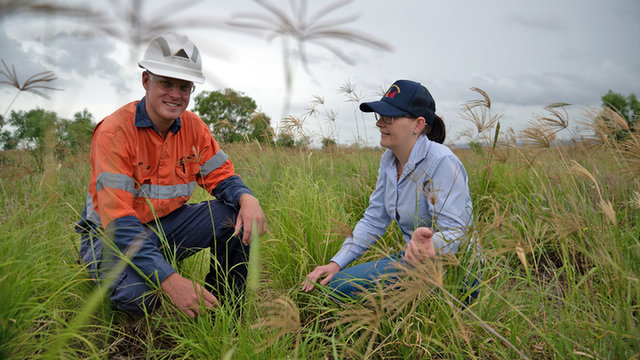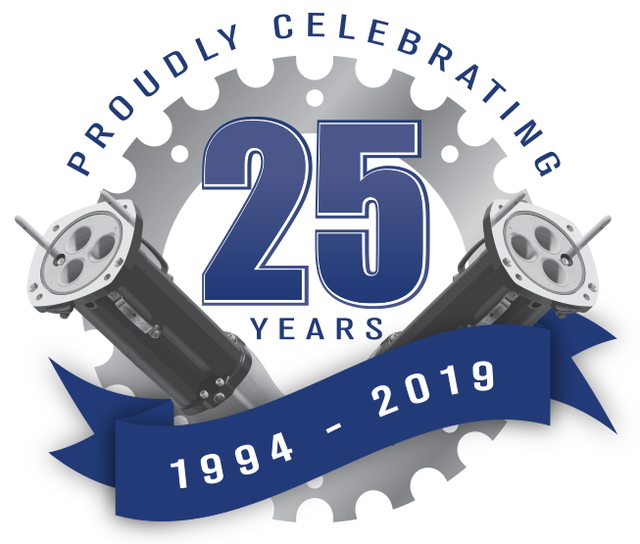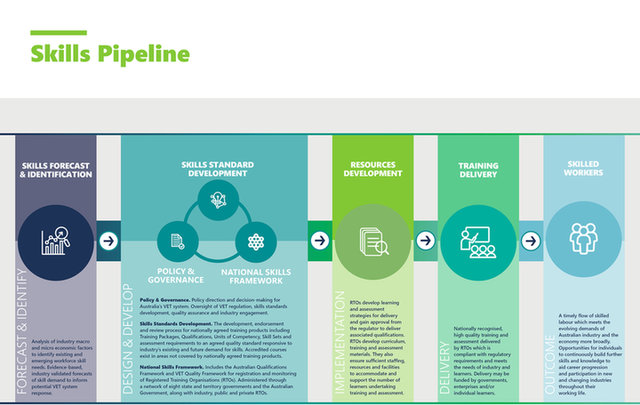TThe nature of work in Australia is changing. Our nation’s capacity to grow, compete and thrive in a global economy has become dependent on employers and individuals, regardless of background or circumstance, being able to access and use the right skills at the right time.
The mining industry has undergone a period of significant expansion in the past decade. Australia is producing new record volumes of iron ore, coal, bauxite, gold and lithium, along with nickel, copper and other commodities.
With global population growth and rapidly escalating demand for energy and infrastructure, we are using more minerals and metals than ever. In turn, the demand for workers remains strong. More than 17,000 new jobs in the resources sector have been created in Australia since 2016.

More than half of the country’s coal mines are managed by pro-Russian separatist militia.Credit: DmyTo/Shutterstock.
More than half of the country’s coal mines are managed by pro-Russian separatist militia.
Credit: DmyTo/Shutterstock.
The mining industry has a great story to tell: our high-skill, high-wage workforce is younger, better paid, better trained and has a much higher share of apprentices than other sectors, with average full-time weekly pay of $2,659, more than 65 per cent higher than the all-industries average.
More than one-fifth of the mining workforce is university educated. A further 38 per cent hold a certificate III or IV; another 8 per cent hold a diploma.
Apprentices and trainees comprise 4 per cent of the workforce, double the national average. More than 35 per cent of these apprentices are employed in traditional trades such as metal trades, automotive, electrical and construction.
With demand for skilled workers growing across Australia, the MCA has long advocated for more flexible, higher quality and responsive training and workforce development to build the minerals workforce of the future.
This workforce will be more diverse, geographically distributed and digitally connected. As the nature of work changes and evolves, workers will need skills and capabilities that are adaptable, transferable and relevant to the needs of the future economy.
Quality and responsive education, training and workforce development are crucial to ensuring a supply of skilled workers enter and remain in the industry.

AusProof is celebrating 25 years of business in Australia in 2019.

AusProof is celebrating 25 years of business in Australia in 2019.
The Australian Government’s $585.3 million Skills Package, announced in 2019, includes funding for three Skills Organisations pilots targeting the priority industries of mining, human services care and digital technologies.
The pilots will work to strengthen Australia’s Vocational Education and Training system (VET) by ensuring it remains responsive, respected and flexible – providing learners with the skills needed to succeed in modern workplaces and employers with the workers needed to grow a strong economy.
The three pilots will trial new ways of working to shape the national training system to be more responsive to the skills needs for those industries – from the identification of skills needs, to qualifications development, through to improving the quality of training delivery and assessment. Lessons from these pilots will help inform broader improvements to the national training system.
The Mining Skills Organisation Pilot (MSOP) was announced on 1 November 2019. The mining industry is at the forefront of industries undergoing large-scale skills shifts as a result of changing technologies and future global demands.
Mining continues to be one of the largest areas of economic growth for Australia and the industry directly employs over 240,000 people across the country. And taking into account the Mining Equipment Technology and Services (METS) sector, this number increases to 1.1 million – one in every 10 jobs.
VET provides a number of pathways into the minerals industry, including apprenticeships and traineeships, skill sets, and Certificate I, II, III, IV and Diploma level training packages for Mining, Drilling and Civil Infrastructure.
The MCA will coordinate the MSOP on behalf of employers and in conjunction with broader industry. In doing so, the MSOP will work with key players in the national VET governance structures to advise on and obtain agreement to changes that improve the quality and the extent of training for the sector.
The MSOP will also provide advice to the Department of Education, Skills and Employment and the Minister for Employment, Skills, Small and Family Business.
During the Covid-19 pandemic, the capacity to be more responsive to industry requirements and implementing the pathways necessary to facilitate skills acquisition through a fast-to-market model is more important than ever.
Through MSOP, the mining industry will have the flexibility to develop and test innovative forecasting methods, training offerings and options across the skills pipeline to achieve the responsive pathways and skills acquisition required in the immediate and post Covid-19 employment landscape.
When Australia emerges from the Covid-19 pandemic, a strong mining sector and a highly skilled workforce will ensure Australia’s speedy economic recovery is delivered for the benefit of all Australians.

Source: Department of Education, Skills and Employment Skills Organisations National co-design Discussion Paper – September 2019

